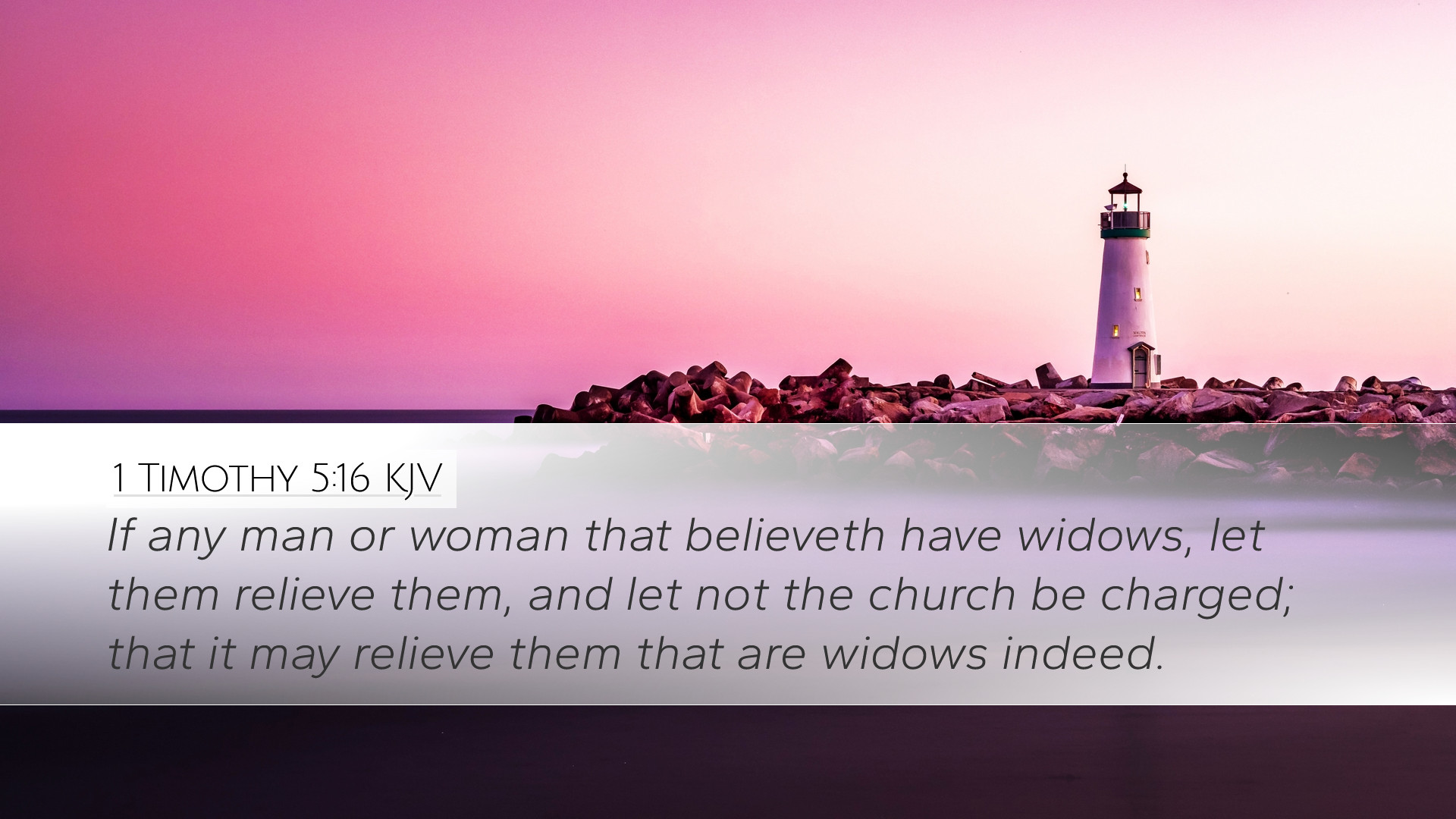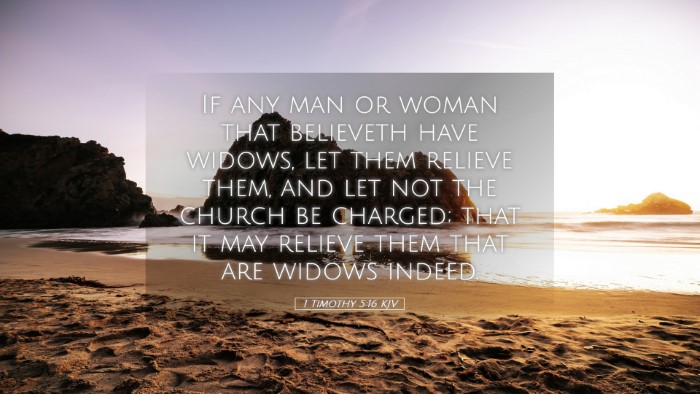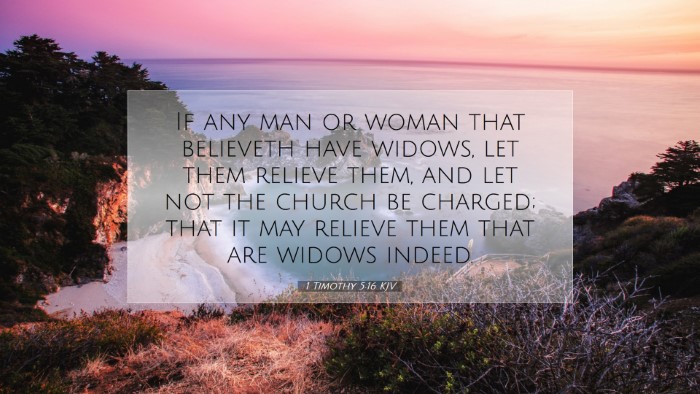Commentary on 1 Timothy 5:16
Verse Context:
1 Timothy 5:16 states, “If any woman that believeth hath widows, let her relieve them, and let not the church be charged; that it may relieve them that are widows indeed.” This verse touches on the practical responsibilities of believers regarding their families and highlights the church's role in caring for those in genuine need.
General Exegesis
This portion of Paul's letter to Timothy addresses the instructions on caring for widows. The apostle emphasizes the personal responsibility that falls on family members, particularly those who are believers, to provide support before involving the church. This underscores the principle of familial obligation in Christian teaching.
Insights from Matthew Henry
Matthew Henry highlights the importance of practical faith manifested through actions. He emphasizes that a believing woman should take responsibility for her widowed relatives instead of displacing the church’s resources. This demonstrates a balance between personal responsibility and communal support, where the church is reserved for those truly in need.
- Relieving Widows: Henry points out the directive to relieve widows is a call to action, urging the church to recognize and uphold this aspect of care as part of community life.
- No Charge to the Church: He notes that the church’s funds should be prioritized for genuine cases of destitution, ensuring resources are not misused or depleted for those who have family support.
Insights from Albert Barnes
Albert Barnes elaborates on the implications of this verse regarding the role of women within the church. He asserts that a believing woman has an inherent responsibility to care for her family, especially widows, highlighting the property of love and compassion that characterizes true faith.
- Family First: Barnes affirms that it is the first order of business for believers to prioritize their family obligations, showing that support should begin at home.
- Church’s Responsibility: He acknowledges that the church's responsibility is to help those who are in dire need, further categorizing widows to include those without family support.
Insights from Adam Clarke
Adam Clarke offers a deeper theological reflection on the nature of care within the Christian community. He interprets the verse as a practical guide for ensuring that church resources are used judiciously, stating that church aid should be directed towards those whose need cannot be met by family members.
- Judiciousness in Support: Clarke emphasizes the need for discernment in determining genuine need, suggesting that the church should not carry burdens that families ought to be carrying.
- Wider Implications: His commentary suggests that this verse serves as a precedent for modern church governance, urging leaders to maintain a balance between community support and personal responsibility.
Theological Considerations
The significance of this passage extends beyond mere social duty to encompass deep theological implications about love, community ethics, and stewardship.
- Faith in Action: The verse encapsulates the idea that genuine faith acts through love—an obligation to extend support, especially to vulnerable populations within one’s immediate circle.
- Community and Church Relations: It presents a model where the church acts as a safety net, intervening when family support is absent or insufficient, thereby reinforcing both familial and communal structures.
Practical Applications
For pastors and church leaders, this verse serves as a vital guideline for mobilizing congregational care efforts. It highlights the importance of teaching about family responsibility while also embracing the church's role in community welfare.
- Teaching on Family Obligations: Churches can create curriculums that guide members on their responsibilities to support family members first before seeking church assistance.
- Resource Management: Leaders can foster a culture of accountability in the church, ensuring that resources are allocated to those in true need, thereby exercising wise stewardship.
Conclusion
1 Timothy 5:16 provides a profound insight into the interplay between individual responsibility and church support. The teachings of Henry, Barnes, and Clarke converge in their understanding of this balance, revealing a scriptural mandate for believers to care for their own, while the church serves as a crucial support resource for those who fall through the cracks. This passage continues to resonate today, urging churches to foster both personal commitment to family welfare and communal compassion.


